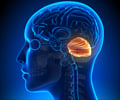Tel Aviv University researchers have offered new hope for people with incurable neurodegenerative diseases like Huntington's, Alzheimer's, and Parkinson's.
Tel Aviv University researchers have offered new hope for people with incurable neurodegenerative diseases like Huntington's, Alzheimer's, and Parkinson's.
The researchers show that the viability of stem cells created from a patient's own bone marrow can be determined using MRI tracking methods.Dr. Yoram Cohen, of TAU's School of Chemistry, claims that he has been able to track the progress of the innovative cells called mesenchymal stem cells within the brain.
He says that initial studies indicate that it is possible to identify unhealthy or damaged tissues, migrate to them, and potentially repair or halt cell degeneration.
"By monitoring the motion of these cells, you get information about how viable they are, and how they can benefit the tissue. We have been able to prove that these stem cells travel within the brain, and only travel where they are needed. They read the chemical signaling of the tissue, which indicate areas of stress. And then they go and try to repair the situation," he says.
During the study, Dr. Cohen and his colleagues tracked the activity of the live cells within the brain using the in-vivo MRI at the Strauss Center for Computational Neuro-Imaging, with a view to establishing their viability as a therapy for neurodegenerative disease.
The researchers used magnetic iron oxide nanoparticles to label the stem cells, so that they could be identified as clear black dots on an MRI picture after being injected into the brain.
On MRI, it was possible to watch the stem cells migrating towards the diseased area of the brain.
He believes that the benefits of using differentiated mesenchymal cells (MSC) may be numerous.
"Bone marrow-derived MSCs bypass ethical and production complications, and in the long run, the cells are less likely to be rejected because they come from the patients themselves. This means you don't need immunosuppressant therapy," he says.
Dr. Cohen has revealed that the next step in his research will be to develop a real-life therapy for those suffering from neurodegenerative diseases.
A researcher article on his study has been published in the journal Stem Cells.
Source-ANI
ARU
 MEDINDIA
MEDINDIA



 Email
Email





